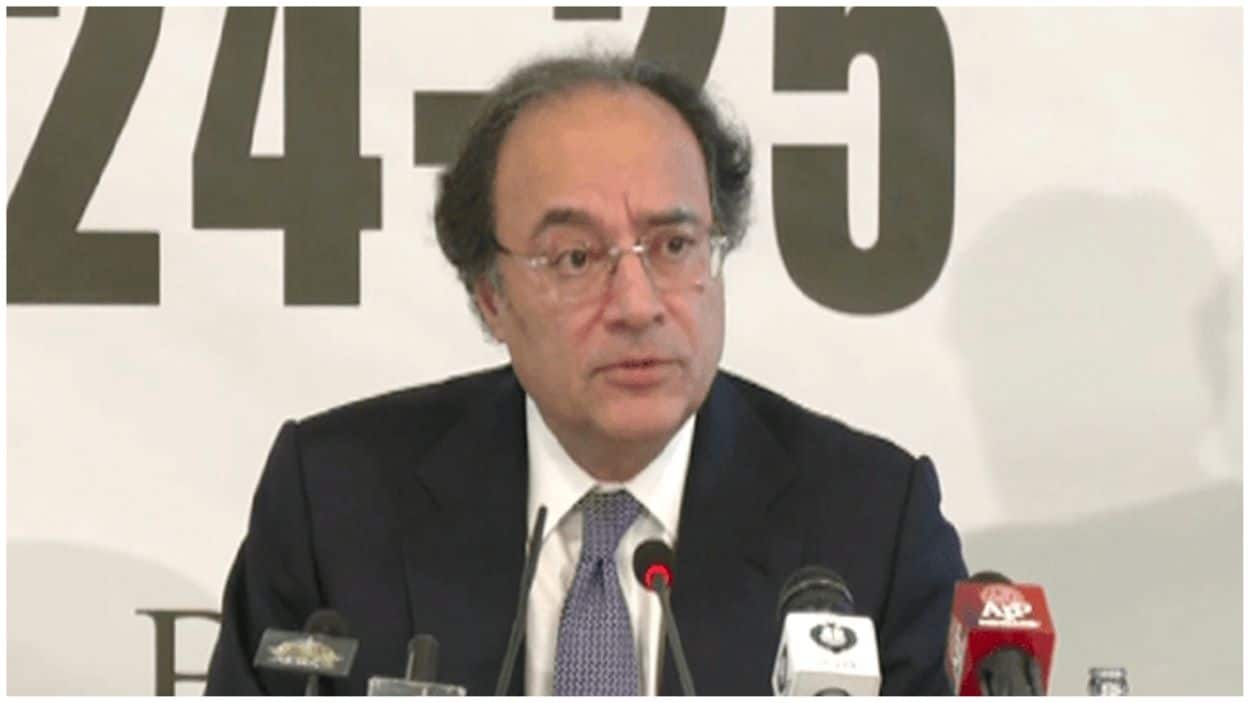Finance Minister Muhammad Aurangzeb announced on Tuesday that Pakistan has finalized the terms of a $1 billion loan from two Middle Eastern banks, a significant step toward addressing the country’s financial challenges.
The loans, secured at an interest rate of 6-7%, consist of one bilateral loan and one trade financing arrangement, with short-term tenures of up to one year. Aurangzeb shared the details during an interview at the World Economic Forum’s annual meeting. As State Bank of Pakistan Governor Jameel Ahmad outlined, this initiative is part of Pakistan’s broader plan to raise $4 billion from Middle Eastern commercial banks by the next fiscal year.
Aurangzeb expressed optimism about Pakistan’s economic prospects, emphasizing plans to engage credit rating agencies for a potential upgrade to a single B rating. “Ideally, some action in this direction can take place before our fiscal year ends in June,” he stated.
Pakistan’s credit rating, classified as “junk,” saw slight improvements earlier this year. Moody’s upgraded the rating to Caa2 in August, citing improved macroeconomic conditions, while Fitch raised its rating to CCC+ in July following Pakistan’s staff-level agreement with the International Monetary Fund (IMF).
Pakistan continues its progress under the $7 billion IMF Extended Fund Facility (EFF) secured in September 2024. The program’s first review is scheduled for late February 2025. Aurangzeb expressed confidence in meeting the program’s requirements.
In addition, the government requested $1 billion from the IMF’s Resilience and Sustainability Trust (RST) in October to fund climate-related projects. Discussions on this are expected to advance during the upcoming IMF mission. “I’m optimistic that within six to nine months, we can finalize this with the Fund,” Aurangzeb said.
Revival Plans for Pakistan International Airlines (PIA)
Aurangzeb highlighted efforts to privatize Pakistan International Airlines (PIA) as part of the economic recovery plan. After a failed attempt last year to sell a 60% stake in the debt-laden carrier, he anticipates significant progress within the next five to six months. The recent lifting of a 4.5-year EU ban on PIA flights to Europe further boosts the airline’s business prospects.
Read: Pakistan Announces Launch Date Panda Bond Issuance
Recognizing Pakistan’s vulnerability to climate change, the government aims to utilize the RST for adaptation projects and transitioning to clean energy. The program offers concessional financing to address long-term climate challenges and strengthen climate resilience.
With financial arrangements in progress and the IMF review on the horizon, Pakistan remains focused on stabilizing its economy while addressing structural weaknesses. However, challenges in privatization, credit rating improvements, and climate financing demand sustained efforts to ensure long-term economic stability.






